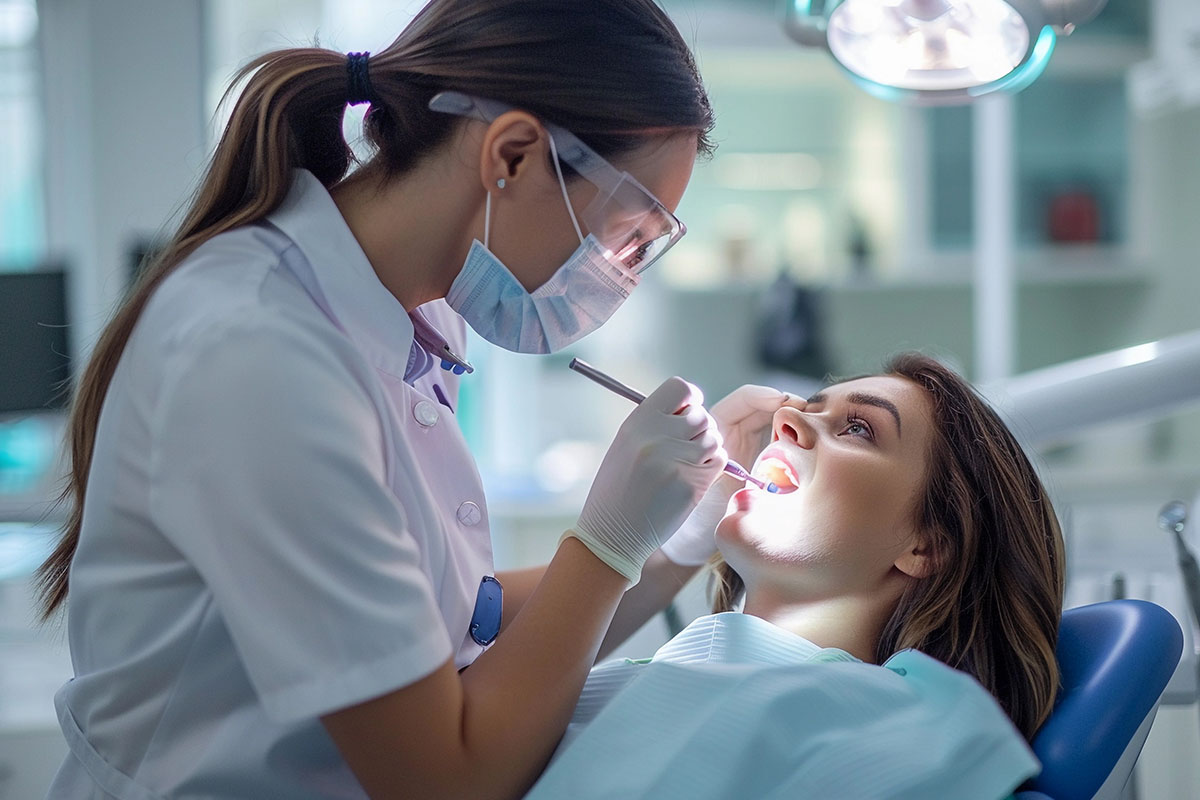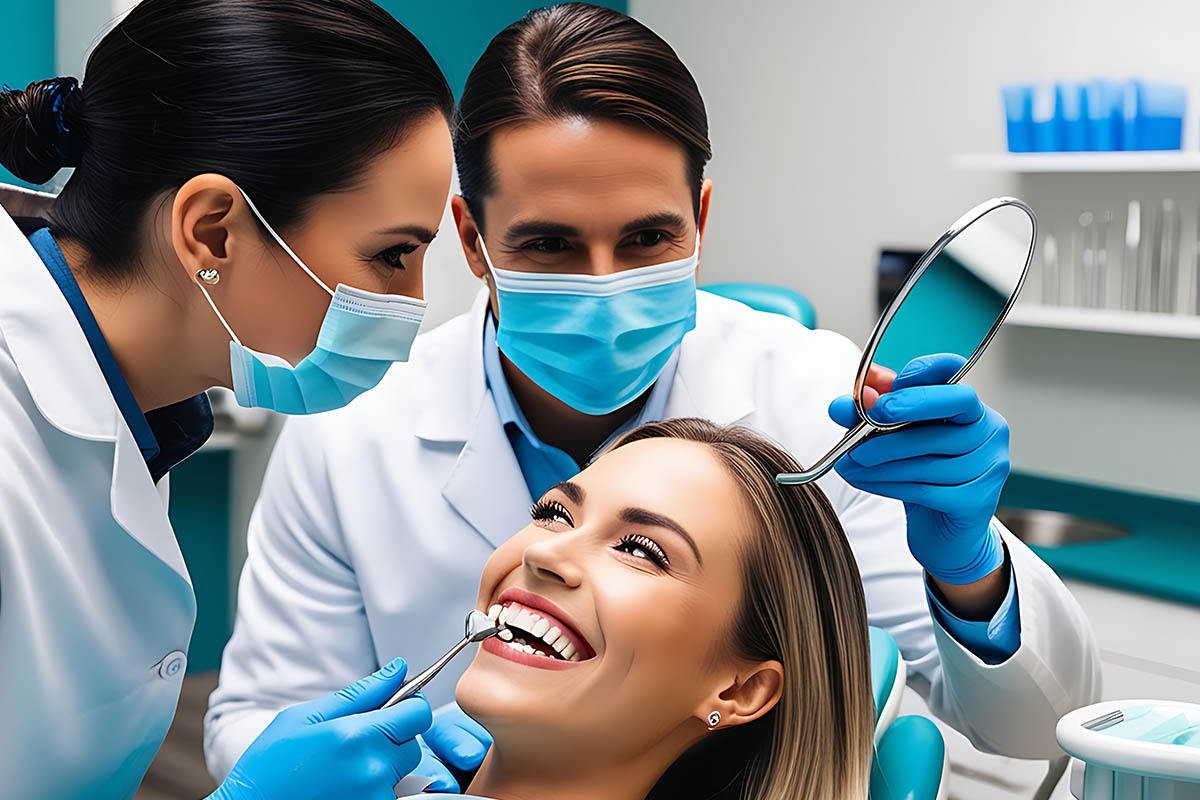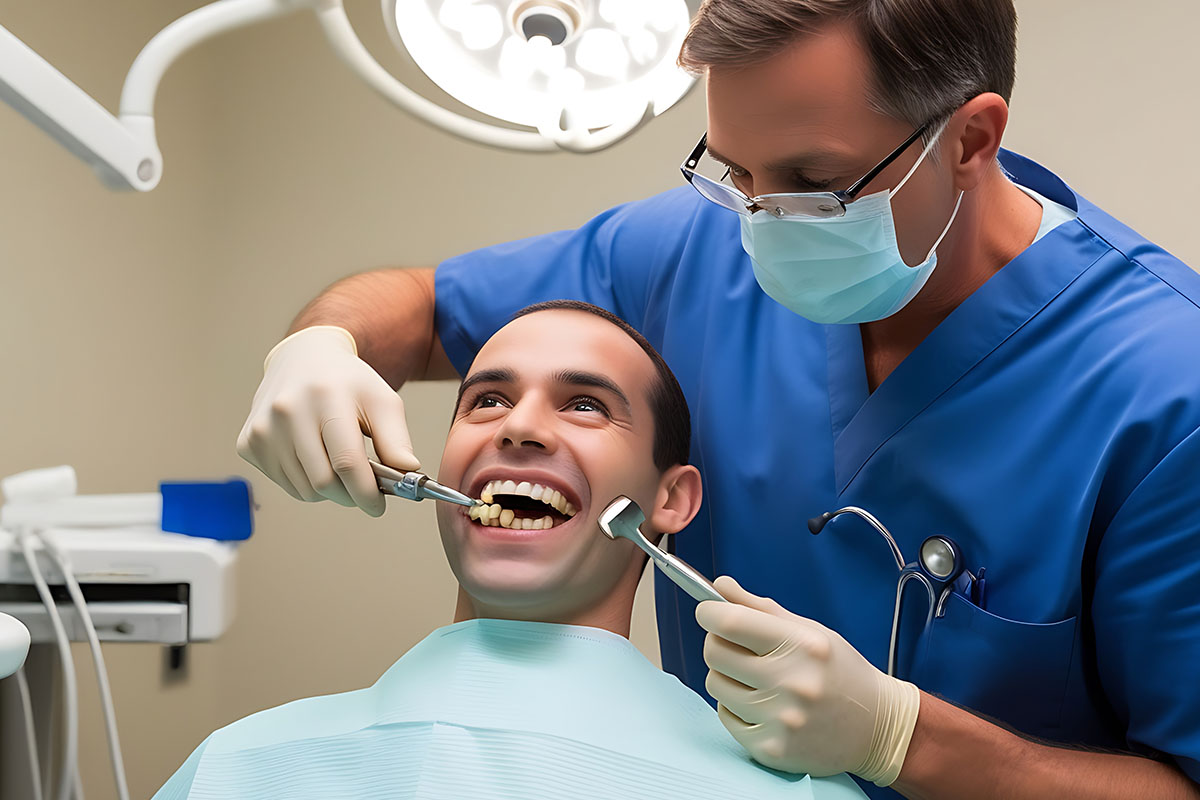




Dentures are removable prosthetic devices used to replace missing teeth. They are custom-made to fit the patient’s mouth and can be full (replacing all teeth) or partial (replacing only some teeth). Dentures help restore the ability to chew, speak, and smile confidently. They are typically made from materials like acrylic resin, porcelain, or metal. Regular adjustments and maintenance are required to ensure a good fit and comfort. If you’re considering offering dentures at your dental clinic, having a clear process for fittings, impressions, and aftercare will be key to patient satisfaction.
Offering dentures at our hospital can be a valuable service for patients with missing teeth. To streamline the process, consider the following steps:
A dental cleaning is a professional cleaning performed by a dental expert to remove plaque, tartar, and stains from the teeth. It helps maintain good oral hygiene and prevents gum disease and cavities.
Most people should get a dental cleaning every six months. However, some individuals may require more frequent visits depending on their oral health needs.
Dental cleaning is generally painless. You may experience some discomfort if you have sensitive gums or plaque buildup, but it should not be painful. If you’re feeling nervous or anxious, talk to the dental expert about ways to make you more comfortable.
Regular cleanings help prevent tooth decay, gum disease, and bad breath. Even if you brush and floss at home, professional cleaning is necessary to remove hardened plaque (tartar) that cannot be cleaned with regular brushing.
The cleaning process includes scaling (removing plaque and tartar), polishing, and flossing to remove any remaining plaque. Your hygienist will also inspect your gums for signs of disease and may take X-rays if necessary.
Typically, a dental cleaning takes about 30 to 60 minutes, depending on the extent of cleaning needed.
After your cleaning, it’s important to maintain good oral hygiene by brushing twice a day, flossing daily, and using mouthwash. Drink plenty of water and avoid sugary snacks to protect your teeth.
A dental cleaning helps remove plaque and tartar but cannot treat cavities or gum disease. If issues are discovered during the cleaning, your dentist will discuss further treatment options.
It’s generally safe to eat and drink after a dental cleaning, but you might want to avoid hot or cold foods for a short time if your teeth feel sensitive.
We always take care of your smile
(+91) 931 640 1074, (+91) 834 760 1064
The goal of our clinic is to provide friendly, caring dentistry and the highest level of general, cosmetic, and specialist dental treatments.
© Sevarth Smile Care 2025 All right reserved.